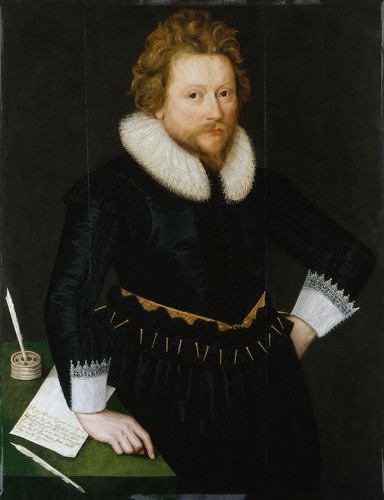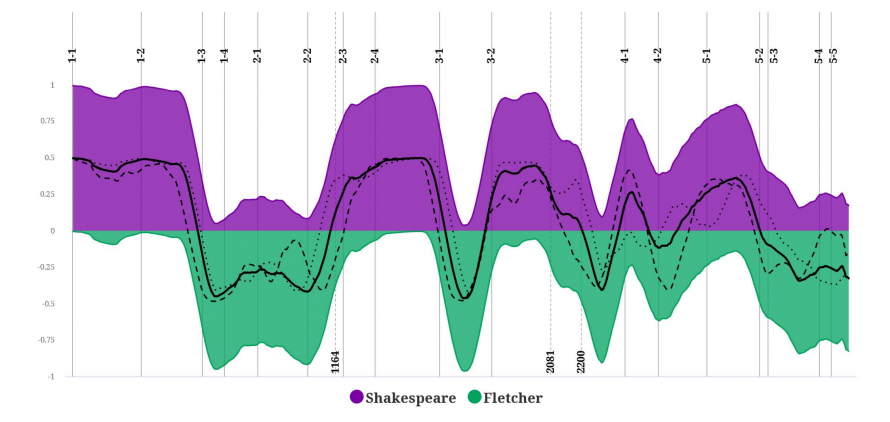Credits the Bard’s Theater Company Successor for Parts of Henry VIII
Elizabethan playwright William Shakespeare had a co-author in at least one of his plays, which literary historians long suspected wasn’t entirely his, according to analysis by a neural network.
A story in technologyreview.com explains how linguistic idiosyncracies in the text allowed the machine learning model to compare and contrast a suspected contributor’s works with the play and tease out which passages he apparently wrote.
Petr Plecháč at the Czech Academy of Sciences in Prague, who says he has solved the problem using machine learning to identify the authorship of more or less every line of the play. “Our results highly support the canonical division of the play between William Shakespeare and John Fletcher proposed by James Spedding,” says Plecháč.

John Fletcher, circa 1620, by unknown artist. (Source: Wikipedia)
John Fletcher, a prolific and famous playwright of the time, took over Shakespeare’s King’s Men players when the playwright died in 1616. Literary analyst James Spedding noticed similarities to Fletcher’s writings in the play, and Plecháč’s AI analysis confirmed it. Other literary analysts proposed that another English dramatist, Philip Massinger, was Shakespeare’s coauthor. They were proven wrong.
“The evidence comes from studies of each author’s linguistic idiosyncrasies and how they crop up in Henry VIII. For example, Fletcher often writes ye instead of you, and ’em instead of them. He also tended to add the word sir or still or next to a standard pentameter line to create an extra sixth syllable.”
Plecháč trained the algorithm to recognize Shakespeare’s style using other plays written at the same time as Henry VIII, including The Tragedy of Coriolanus, The Tragedy of Cymbeline, The Winter’s Tale and The Tempest. Then he trained the algorithm to recognize John Fletcher’s plays of the period—Valentinian, Monsieur Thomas, The Woman’s Prize and Bonduca. The results made it easy to determine authorship.

The algorithm broke down contributions by each writer.








Leave A Comment